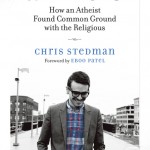 I wrote about the religious element of Joe Biden’s response to Martha Raddatz’s question about abortion last week.
I wrote about the religious element of Joe Biden’s response to Martha Raddatz’s question about abortion last week.
In a great post this week over at Feministing, Mimi Arbeit breaks down four possible answers to the question, pointing out that Biden used the first three:
(See video, transcript.)
Many others have expressed frustration with Raddatz for framing the question this way. But she did, and others do too, so how should we respond? I see four options:
- Some people of faith are also pro-choice
- Separation of Church and State
- Women’s rights and identity politics
- A medical/economic framework
After thinking through these responses, I see the last option as the only one that will move us forward to reproductive justice and full access to safe, legal, and affordable abortion services.
Here’s what Mimi goes on to say about how and why the medical/economic framework is essential to moving the conversation forward:
Safe, affordable, and accessible abortion is a universal medical and economic need. Other approaches perpetuate an unacceptable erasure of people who do not fit the implicit paradigm of straight, white, Christian, middle class, and womanly. We need to move beyond that. And we need to talk about contraception and abortion together (Ryan did and we should, too).
Here’s a quick, limited outline of the medical and economic need for reproductive justice and the many issues included in this framework:
- Med #1: Prohibiting legal abortion results in illegal abortions. Illegal abortions are unsafe. People will die.
- Econ #1: Access to reproductive care enables people to pursue education and employment.
- Med #2: When people do choose to carry a pregnancy, they need prenatal care!
- Econ #2: When people—single or partnered, married or not—choose to have children, they need economically viable ways to care for self and family.
- Med #3 & Econ #3: Children need health care, housing, food, and education in order to grow into happy, productive adults, which is a good thing for all of us.
- Med #4: Contraception is safer and less expensive than pregnancy or abortion.
- Econ #4: Contraception is highly effective in reducing unwanted pregnancies and abortions; therefore, providing free contraception is cost-effective for our health care system.
As one who works at the religion/politics intersection, and tries to make a pro-faith pro-choice argument, I can testify that Mimi is spot on pointing out that “we quickly hit stalemate” when religion is part of the conversation. It’s frustrating, but I’ll keep on making that case alongside the one for reproductive justice based on medical and economic need, because opponents to justice will keep on thrusting their religion into the middle of it. I refuse to let them have the only say on matters of faith.
Focusing on the medical and economic facts as stated here is essential for when the personal becomes political.
Because despite our differences on matters of religion and faith, these facts are shared by us all.












